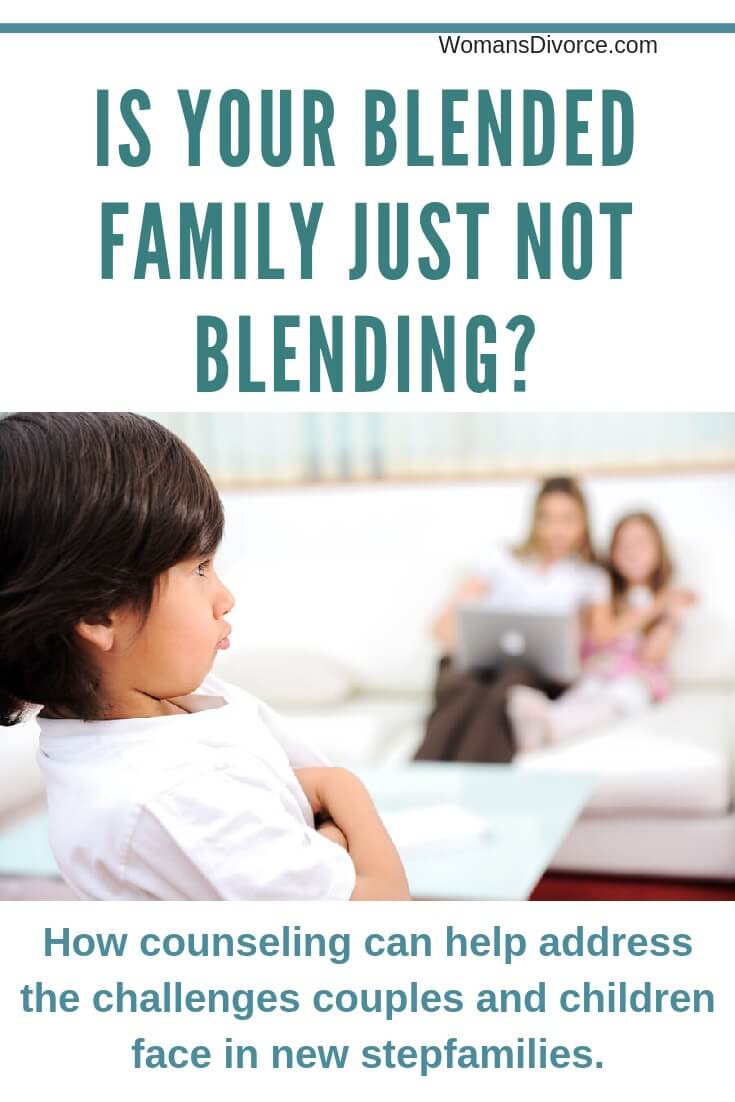Counseling for Blended Family Issues
Blended families are becoming more common as many divorced parents go on to remarry at some point in their lives. And while remarriage can feel like a fresh start, it’s not without its difficulties, especially if both partners have children from a previous marriage.
A blended family is simply another term for step-family. When two separate family units are joined together, there are adjustments for everyone involved. But the adjustments are especially hard for children, who may resist the changes brought about by the new family unit.
While it can take time to adjust to the changes of the new family unit, counseling can help work through the issues your child may having. But it’s also important for the parents to get counseling as well, as illustrated in the article below.
Blended Family - Kids in Distress
Things were going well. Then one parent remarries, a new family emerges and the kids are in distress. The other parent determines the child needs counseling or that a change in access is necessary to limit the child's exposure to the new family, viewed as the source of distress. The fight is on again. Or need it be?
Counseling just for the child is not enough

It is safe to assume that most parents will enter into a new relationship post separation/divorce, many resulting in a combination of children. The issue then becomes how to manage the new relationship in view of the kids and how to manage the adjustment process.
When children appear significantly distressed in a newly blended family, the other natural parent may take them to counseling as a means to investigate the distress or help them cope. Unfortunately however while this provides a sense that something is being done, often little is accomplished. In fact, counseling only for the child with difficulty adjusting to new blended family can do more harm than good. The issue is akin to arranging the deck chairs on the Titanic. While the chairs may look nicely arranged, the ship continues to sink.
While chatting with a counselor may help the child feel better in the short run, if the larger issues of parental adjustment, child management, communications and boundaries within and between families are not addressed, the child can fall back to distress shortly after a brief upturn from counseling. A failed counseling experience will cause future counseling efforts to be viewed skeptically and the parent may now rush to the change in access.
Natural parents and new partners also need counseling
For children in distress in the context of adjustment to a new blended family, rather than just sending the kids off to counseling, the parents and their partners should enter counseling or "parent education" or mediation themselves.
While it is preferred for both natural parents and new partners to attend counseling together, it is understood that this may not be possible. What matters though, is that all the adults see the same counselor (or educator, or mediator) so the counselor gets a full view of the situation as opposed to a one-sided or biased view. With an unbiased view, the counselor can then help in the adjustment process knowing issues on both sides.
Adjustment doesn't necessarily mean restructuring the access regime. It may mean identifying and sorting out feelings between former spouses regarding any number of issues as well as issues within the newly blended family. All pertinent matters as assessed by the counselor should be addressed in the interest of the children.
Identifying the issues
Children can be very sensitive to their parents' feelings and this alone can be a great source of their distress over and above their own adjustment. However, by meeting with the parents, even more can be achieved. In addition to identifying emotional issues for resolution, issues such as the children's homework, activities, routines and matters of discipline can be discussed. The view is to attain some consistency and stabilize the children's life within the entire family system consisting of both parents and new family.
As the parental issues of adjustment, management, communications and boundaries are addressed the children's distress often fades. They can go back to concentrating on school and the like. So if a child is in distress after a parent establishes a new relationship or family, the parent is advised to take a deep breath and attend counseling or parent education or mediation with the other parent and do this before changing the access regime.
Consider counseling before changing the custody schedule
Rushing to change the access regime only adds another layer for adjustment and given the child will still go back and forth, the original adjustment issues would remain. Nothing may be solved by a quick change in access and problems can actually be compounded. It may sound scary to the parents to deal with each other in counseling, but the children will likely be better off for it and the children's interest was the goal in the first place.
Kids in distress? Parents go to counseling first.
Updated May 13, 2019
Related articles:
